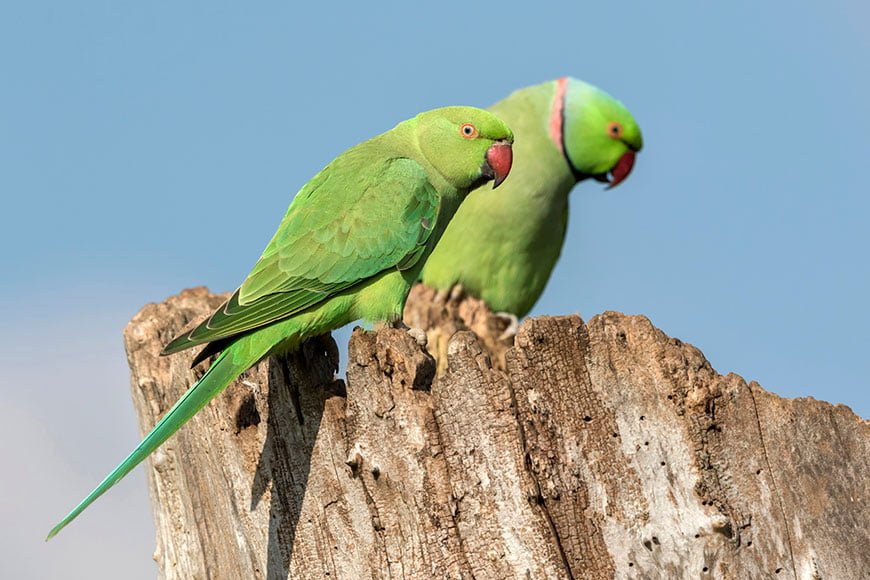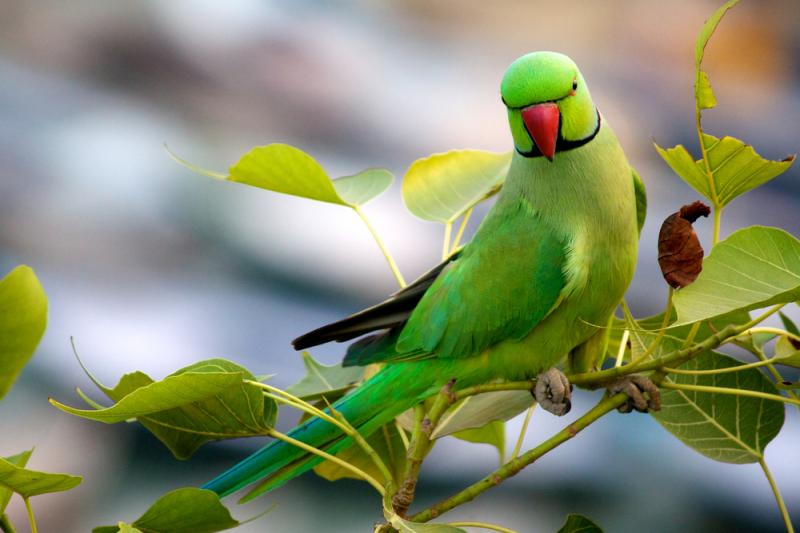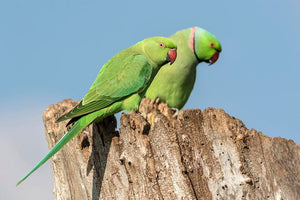

While we make every effort to ensure that our online stock levels are accurate and up to date, some products—particularly those that are perishable or subject to daily changes—may vary in availability. This includes livestock, fish, corals, and both fresh and frozen foods. Due to the nature of these items and their dependence on factors such as shipment schedules, health status, and in-store demand, availability can change rapidly and may not always be reflected in real time on our website.
To avoid disappointment, we strongly encourage customers to confirm the availability of these products before placing an order or visiting In-Store. You can do this easily by using the "Ask a Question" tab on the product page or by calling us directly on 0460 961 696 .
Our friendly team will be happy to assist and provide the most up-to-date information on current stock.

Elegant, intelligent, and endlessly chatty, the Indian Ringneck Parakeet (Psittacula krameri manillensis) is a vibrant companion bird admired for its striking plumage, bold personality, and impressive mimicry skills. With proper handling and socialisation, these parrots can form strong bonds with their caregivers and become highly interactive, vocal pets. Available in a wide range of colour mutations—from classic green to blues, yellows, and greys—Ringnecks are as visually stunning as they are clever.
Species: Psittacula krameri
Common Names: Indian Ringneck Parakeet, Ringneck Parrot
Origin: Indian subcontinent – forests, scrublands, and urban areas
Size: 35–45 cm (including tail)
Average Lifespan: 20–30 years with proper care
Temperament: Curious, independent, and highly intelligent
Care Level: Intermediate to advanced
Housing & Environment:
Indian Ringnecks require a spacious aviary or large indoor cage with ample room to fly and explore. Minimum cage dimensions for a single bird should be 90 × 60 × 90 cm, though larger is always better. Enrichment is key—provide a variety of perches, chewable toys, ladders, and foraging activities to prevent boredom and unwanted behaviours. Time outside the cage daily is essential for mental and physical health.
Diet:
A balanced Ringneck diet includes a high-quality parrot pellet base, supplemented with:
-
Fresh fruits (apple, melon, berries, mango – avoid avocado)
-
Vegetables (spinach, carrot, corn, capsicum)
-
Occasional seeds and nuts as treats
-
Sprouted grains, cooked legumes, and herbs
Fresh water should always be available and changed daily.
Training & Behaviour:
Indian Ringnecks are highly trainable and can learn a wide vocabulary of words and phrases when spoken to regularly. They require gentle, consistent handling and socialisation from a young age. While they can be affectionate, they also have a fiercely independent streak and may go through a bluffing (nippy) phase during adolescence.
Care Tips:
✔ Daily out-of-cage time and interaction are essential
✔ Rotate toys weekly to maintain interest
✔ Be patient and consistent with training—positive reinforcement works best
✔ Avoid sudden changes in routine—they’re sensitive and observant
✔ Regular vet check-ups and wing/nail trims recommended
Compatibility:
Can be kept singly with strong human interaction, or in bonded pairs (males/females or same sex) with caution. May become territorial during breeding season. Supervise around other birds—Ringnecks can be assertive and should not be housed with smaller, more delicate species.
Availability:
Indian Ringnecks are widely available in Australia from licensed breeders and avian specialists. Hand-raised birds are recommended for taming and speech development. Ask us about current colour mutations and availability.
Disclaimer:
"Indian Ringnecks require dedicated care, daily enrichment, and consistent socialisation to thrive. As long-lived parrots, they are a long-term commitment and not ideal for first-time bird owners without preparation."



